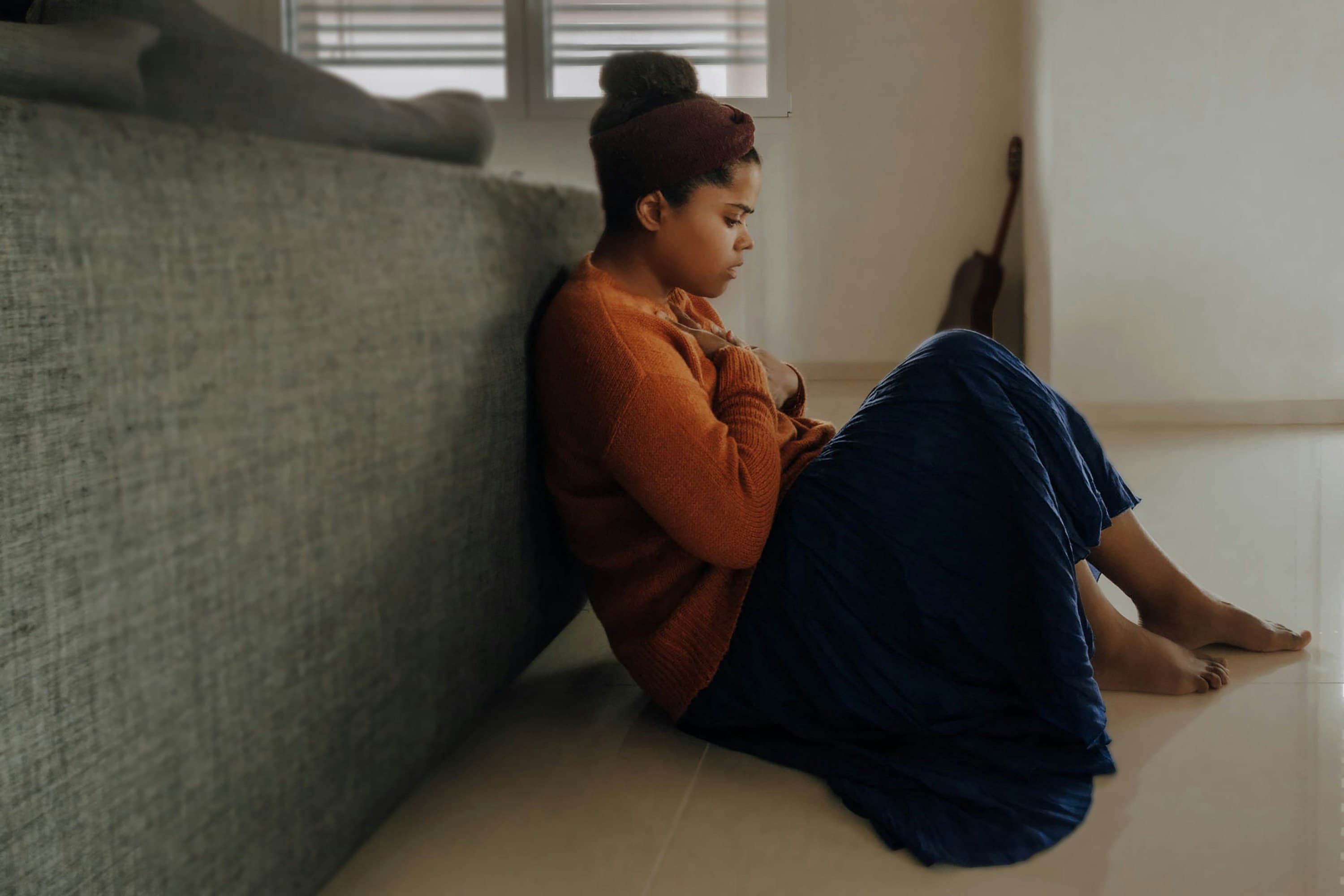Girls and anxiety

By Brightline, Sep 23, 2025
Anxiety. It’s part of being human. It can affect anyone, and in this article, our focus is anxiety and girls.
There are several anxiety disorders that can not only show up in different ways, they can appear at several different points along a girl’s developmental trajectory. The “why” is still being studied.
Some of it has to do with genetics, but the environment must be considered, too. In both cases, learning skills to enhance awareness and understanding of their feelings, and tools that help them navigate situations is key to living with anxiety.
Think about the way girls are raised and socialized. How communities and the world respond to “quiet girls” or girls that are deemed “too much.” The roles that comparison, jealousy, and power can play as girls develop in an ever-growing and scrutinous public eye. And the real fact that the world can be a scary, unsafe, and overexposed place, leaving many girls in a state of fear and hypervigilance.
So, while girls may be made up of sugar and spice and everything nice, nearly 40% of them are also often impacted by at least one kind of anxiety.
Separation. Social. Generalized. Phobias. Panic disorder. And you can’t forget OCD, which is anxiety’s first cousin.
For as many different ways girls can experience anxiety, have anxious thoughts, and exhibit anxious behaviors, there are an infinite number of reasons why.
Note that anxiety itself isn’t the red flag — remember that anxiety is a typical human emotion. It’s when the anxiety outgrows the reality of the situation in which it appears, and starts to interfere in everyday life, that signals it may be time to address it.
Some inherent feelings of nervousness teach girls to listen to their gut instincts — those anxious feelings can actually help keep them safe. Other inner voices plant seeds of fear that begin to grow uncontrollably, wind their way around everyday situations, and choke out necessary things like self-compassion, confidence, and independence.
Prolonged stress, traumatic life events, and the way their brain is wired can all flood a girl’s mind with anxious thoughts. Self-doubt and negativity run rampant, and “I can’t” can quickly turn into “I won’t” when pressed to do something that they’re anxious about (like perform in a recital, see a doctor, or talk to a new classmate).
She might be afraid of needles, of flying, of what might happen to you while she’s at daycare, of what people will say about what she wears, how she looks, or the sound of her voice when she speaks up.
The fears may seem unreasonable to a loving parent who sees their daughter as capable, talented, and worthy. But when it comes to your daughter, no amount of loving them or explaining away how they feel can make the emotions less real for them.
And the flood isn’t contained to just the brain and behavior, like when anxiety shows up as irritation, anger, or avoidance. Anxiety can have very real physical symptoms, too. Headaches, stomach issues, crying, racing heart, dizziness, sweating, muscle tension, shaking, nausea, diarrhea, vomiting — these are all typical responses to a severe anxious episode.
Those physical responses can make some types of anxiety worse, especially if the girl has a fear around throwing up, using public restrooms, or being noticed for looking sick or different. Panic can set in when they feel out of control and the anxiety can spiral or cause her to freeze up or check out entirely.
It’s incredibly hard for a parent to understand whether it’s just the situation (e.g., a new school, different coach, or response to a mean girl) or if there’s something else happening in their daughter’s brain and body.
As her parent, you may feel instinctively that you want to protect her. You want to make excuses, make it easier, pave her path so she can walk freely and step into all the potential you see in her.
You might feel you’re showing her the way and helping her see that she can do anything. Your intentions are so good. You’re the one who held her hand as she learned to walk and you just know you can help her get through this, too.
While short-term ease feels good to you both — you’re helpful and she’s comforted — it may not teach the lesson you’re hoping it will.
As counterintuitive as it may seem, what she’s actually learning when you step in to help at every turn is that she can’t do anything without you.
Getting her the right support, helping her learn skills she can lean on, and empowering her to ride the wave of anxiety can give her the chance to see just how brave she is. She can learn that her anxiety has been lying to her (and that things are not as bad as she maybe thinks they are).
Anxiety isn’t a lifetime disorder. It’s something that can be lived with, worked through, and resized to its usual helpful state. Maybe it’s therapy. Maybe it’s medication. Maybe it’s a combination of things, including exposing her safely to opportunities to learn that she can do things even while she’s anxious.
Girls are complex powerhouses full of strength, tenderness, and ability. She can be scared and brave. She can be anxious and curious. She can be avoidant and try anyway.
She can do it with your help, with our help, and eventually, hopefully, without any help at all.